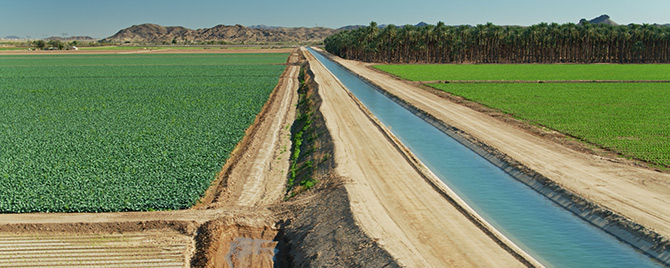As part of the San Francisco Fed’s commitment to promoting an economy that works for every American, we need to understand the disparate impacts of climate change on groups in the Twelfth District that have traditionally faced higher barriers to participating in the economy than the general population. To that end, we recently conducted a survey targeting professionals in the western U.S. whose work on community development issues impacts low-income communities and communities of color to gather their views on climate change-related risks the populations they serve are facing.
Over 250 survey respondents shared their perceptions of how climate-related risks may be affecting their community and their organization’s work. Here are our top takeaways.
- Most respondents say climate-related risk is already affecting the communities they serve—yet those communities aren’t well prepared for the impact.
- 90% of respondents report that climate impacts are currently affecting the populations they serve.
- At the same time, 81% feel that the communities they serve are not well prepared for the impacts of climate change.
- About half (51%) say their organizations are not well prepared to address the impacts of climate change on their work.
- General awareness of climate-related risk is high among respondents, but resources and capacity to address the risk is limited.
- 83% of respondents say they understand the climate risks and vulnerabilities experienced by the communities they serve.
- Over half (58%) also report they understand how climate risk impacts their organization’s work.
- A smaller percentage—39%—say their organization is working to address climate risk in the communities they serve.
- Lack of affordable housing, savings, and transportation access, along with the cost of utilities, all rank high among respondents’ perceived contributors to climate-related risk for individuals in the communities they serve.
- Over two-thirds (72%) of respondents view a lack of housing options in resilient areas as a large contributor to climate risk.
- Lack of savings is named as a large contributing factor by 62% of respondents.
- A little over half (52%) cite lack of transportation and high cost of utilities as a factor.
- Respondents indicate that climate shocks and stresses contribute to risks to local economies, such as reduced availability of housing and worker health.
- About three quarters (76%) of respondents view climate shocks and stresses as significant contributors to reduced availability of housing.
- 55% say climate shocks and stresses contribute to impacts on worker health.
- Lack of funding for adaptation and resilience efforts is the biggest barrier to improving climate resilience. Respondents also perceive day-to-day economic survival as taking precedence for individuals and families over concerns about climate risk.
- 61% of respondents say lack of funding is the greatest barrier to climate resilience efforts.
- Roughly half of respondents (53%) indicate that the second largest barrier is that “residents have more immediate concerns” other than climate risk.
To learn more about the survey findings, read the full report.
Transcript
The SF Fed surveyed 250+ community development practitioners about climate risk.
Here is what we learned:
90% say climate impacts are already affecting the communities they serve.
[Aerial view of the cliffs and shoreline in Torrey Pines, California.]
81% feel communities are not well prepared for climate change impacts.
[Aerial view of irrigated desert farmland in Southern California.]
Learn more at FRBSF.org.
[Image of Federal Reserve Bank of San Francisco logo. End background music.]
Elizabeth Mattiuzzi, PhD is a senior researcher in Community Development at the Federal Reserve Bank of San Francisco. Her research focuses on regional transportation and housing governance, equity, and economic opportunity.
Imagery credits: dkfielding and halbergman via Getty Images.
You may also be interested in:
The views expressed here do not necessarily reflect the views of the management of the Federal Reserve Bank of San Francisco or of the Board of Governors of the Federal Reserve System.
